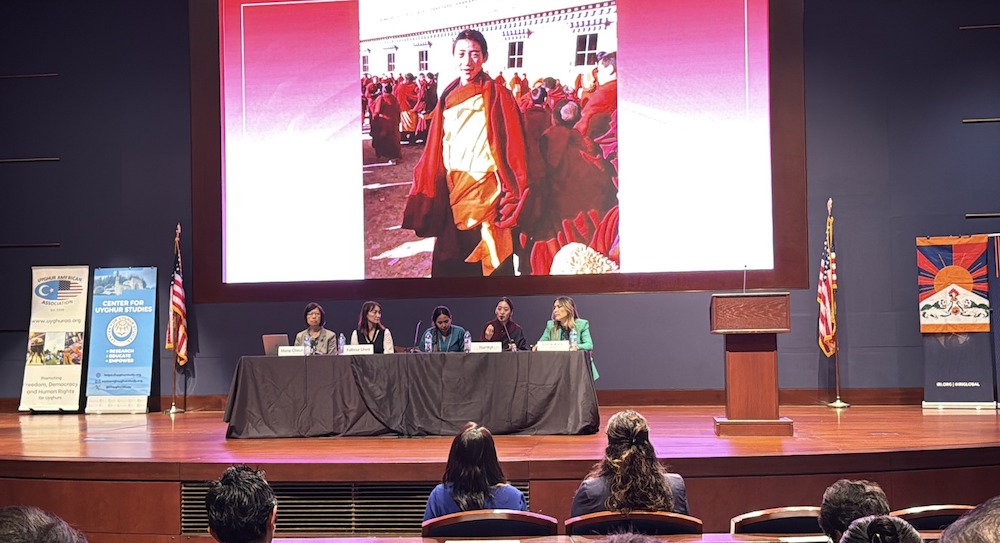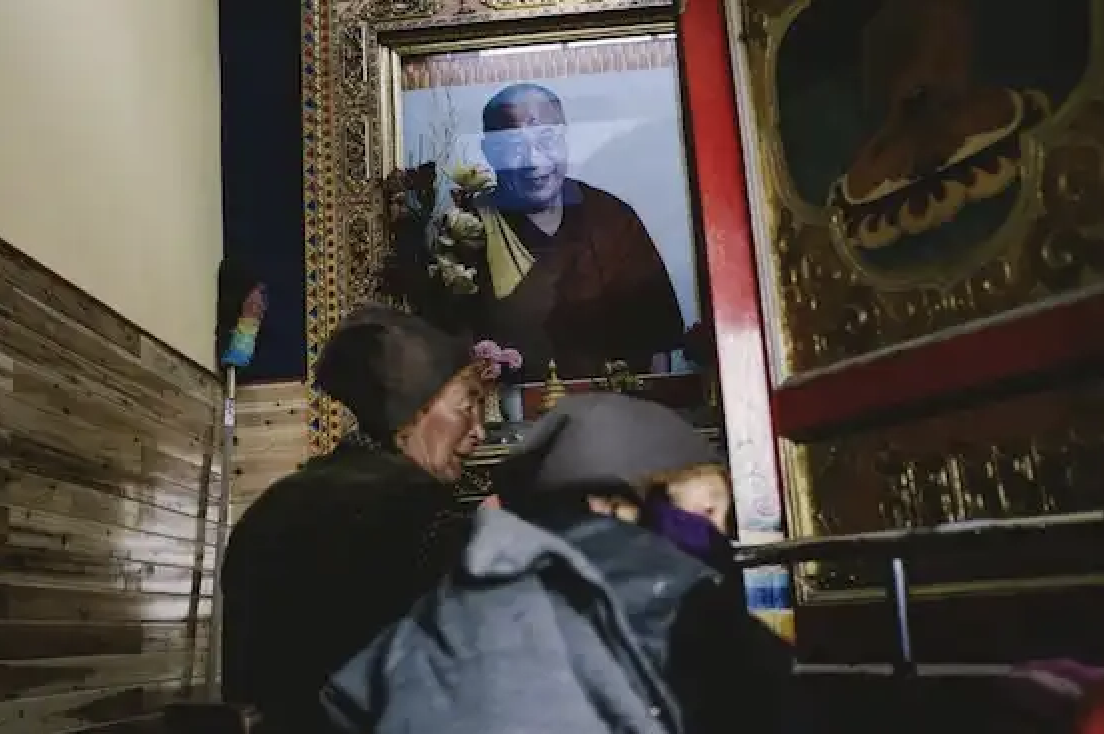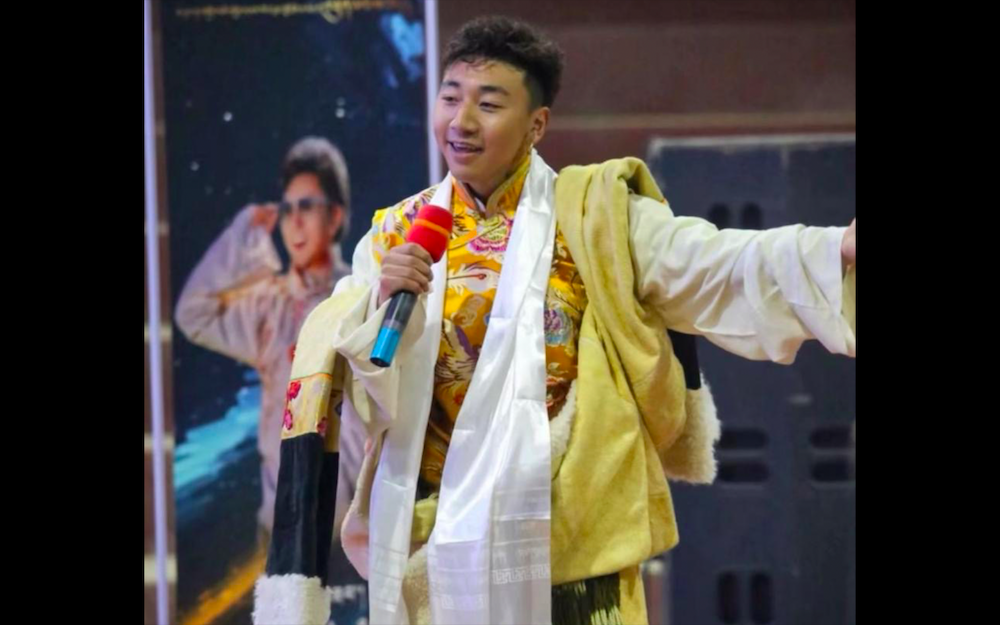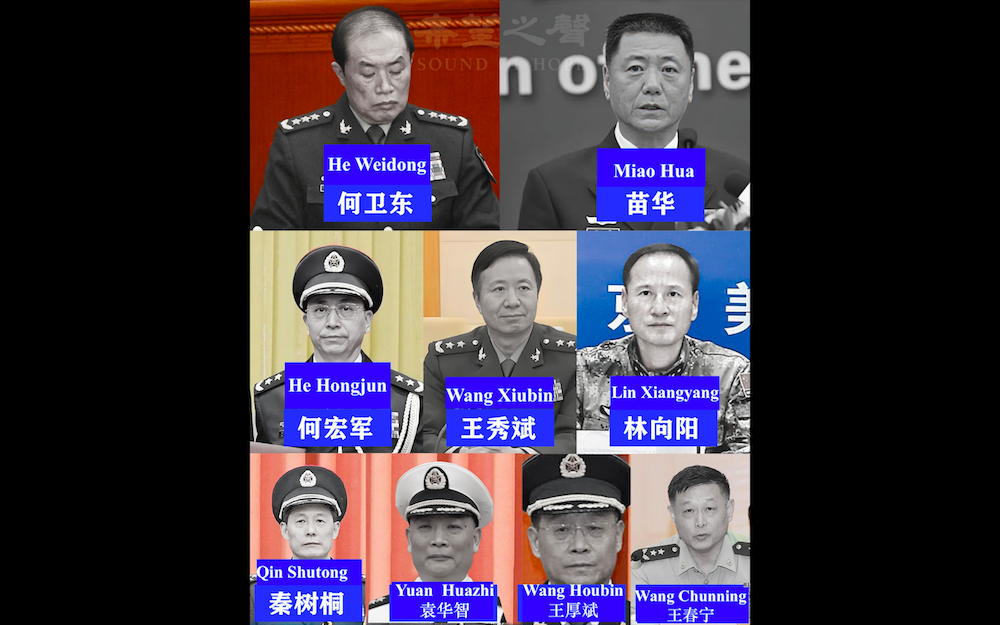Tsering Dhundup
DHARAMSHALA, Oct. 1: Former Tibetan political prisoner Namkyi testified at the “Faith Under Siege: Confronting Religious Persecution and Oppression in China”, conference held at the U.S. Capitol, on the eve of China’s 76th National Day, as survivors of persecution, activists, U.S. lawmakers, and international rights advocates gathered to confront the Chinese Communist Party’s escalating assault on religious freedom.
Namkyi, recounted her 2015 protest in Ngaba County with her sister, Tenzin Dolma, which led to their arrest and torture. “We were forced into solitary confinement, subjected to military drills and political indoctrination, and endured forced labour, inadequate food, and lack of medical care,” she said, showing photographs from the protest as evidence.
The high-profile conference, held at the U.S. Capitol Visitor Center’s Congressional Auditorium & Atrium. Co-organised by the International Republican Institute (IRI), International Campaign for Tibet (ICT), Center for Uyghur Studies, Committee for Freedom in Hong Kong Foundation, Uyghur American Association, International Religious Freedom Summit, the Office of Tibet, and the Luke Alliance.
The event brought together 27 speakers representing Uyghur, Tibetan, Hong Kong, Christian, and Falun Gong communities, alongside senior U.S. officials and global human rights advocates.
Daniel Twining, President of the IRI, emphasised the inseparable link between religious freedom and human rights. “Why is religious freedom so central? Because it binds together all the other rights we cherish,” he said during his keynote remarks. Damon Wilson, President of the National Endowment for Democracy, also addressed the conference, highlighting Beijing’s systematic repression as a global threat.
Chemi Lhamo, former campaigns director of Students for Free Tibet and a conference panellist, told Phayul, “Such a uniting platform outshines the power of truth via the stories of survivors and advocates over the Chinese propaganda, which in the past decade has become increasingly sophisticated to mislead the international community. The key takeaway is that we need to reach ordinary families globally—through their collective support, we can influence legislation and counter the spread of CCP propaganda.”
ICT’s Executive Director Tenchoe Gyatso and Tibet Action Institute’s senior researcher and strategist Dr. Tenzin Dorjee also spoke at the event highlighting Beijing’s repression in Tibet and its broader campaign against different faiths under its rule.
Speakers from the Uyghur, Hong Kong, Falun Gong, and Christian communities shared similar experiences of persecution, including forced labour camps, surveillance, imprisonment, and political indoctrination, underscoring the CCP’s sweeping effort to suppress religious expression.










